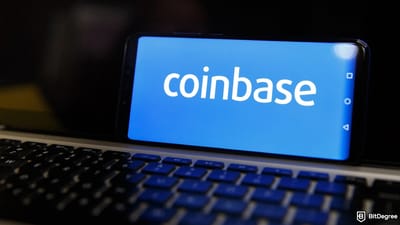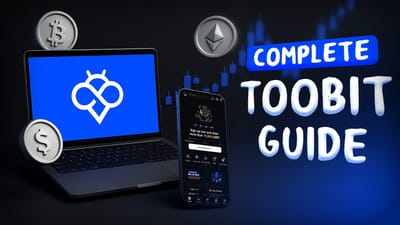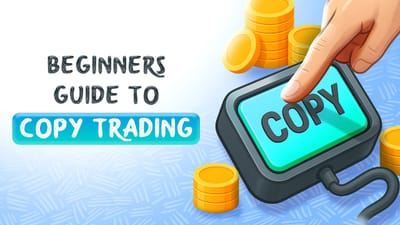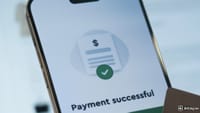Stop overpaying - start transferring money with Ogvio. Join the waitlist & grab early Rewards NOW! 🎁
CoinCall: Diverse Altcoin Options and Futures Trading
Key Takeaways
- CoinCall focuses on providing European-style options and perpetual futures trading, but it also offers spot trading;
- CALL is CoinCall's native token, which can be used to cover trading fees or be exchanged for other assets;
- Apart from trading features, CoinCall also provides users with CoinCall Earn and CoinCall Academy.
CoinCall, one of the newest players in the crypto exchange landscape, has quickly gained attention with its focus on options and futures trading. The platform tackles the complexities of derivatives trading and aims to make it easy for users to engage in it, especially in the diverse altcoin market.
One of the key features of CoinCall is its native token, CALL, which was launched on April 15, 2024. Based on the Solana token standard, CALL is mainly used to cover trading fees on CoinCall. However, it can also act as a medium of exchange and, thus, be traded for other cryptocurrencies.
Now, when it comes to CoinCall's trading features, it offers European-style cash-settled options, which can only be exercised at expiration. The platform’s perpetual futures contracts, on the other hand, have no expiration and are closely tied to the underlying spot index price.

Did you know?
Subscribe - We publish new crypto explainer videos every week!
How to Get Free Crypto? (Explained with Animations)


Recognizing the growing potential of the altcoin trading market, CoinCall offers options not only with BTC and ETH but with various altcoins as well, including SOL, KAS, DOGE, TON, and others.
Besides, it’s worth noting that CoinCall also provides two unique options trading mechanisms: combo and block trading.
Combo trading allows options traders to automate and execute multi-leg strategies efficiently, which helps reduce market risks and achieve better pricing. Traders can select an underlying asset and choose from pre-built strategies or create custom ones.
Block trading on CoinCall caters to large-volume trades, claiming to offer the best fees and credit lines. To be able to access this feature, your BTC or ETH options trading volume has to reach $200,000. If you're trading altcoin options, on the other hand, it has to reach $50,000.

Apart from options and futures trading, CoinCall also supports spot trading, but it only offers 26 tokens as of writing. Since the exchange is still relatively new, it doesn't support that many cryptocurrencies overall, but it might add more in the future.
Now, the platform also features a user-friendly interface with versions for both beginners and experts. Besides, if you get lost in the world of derivatives trading, there is the CoinCall Academy, which offers various educational resources.
On top of that, for those who are looking for earning features, there is the CoinCall Earn program, which offers various high-yield financial products that meet different investment needs. These include Flexible Savings and structured earning products like Accumulator, Snowball, and Dual Investment.
To keep the trading environment secure, CoinCall requires users to complete the Know Your Customer (KYC) verification process. There are two KYC levels on CoinCall – level 1, which requires you to provide your ID document and a selfie, and level 2, which requires proof of address. The key difference is that level 2 has a higher withdrawal limit.
That said, here is a quick guide on how to pass KYC level 1 on CoinCall:
- Create an account on CoinCall. After logging in to your account, click the icon in the upper right corner of the homepage and select [Verification] to start the process.
- Prepare your documents. Ensure you have a valid ID, passport, or driver's license with an expiry date and issued within the last 10 years.
- Submit clear images. Take pictures in a well-lit area. Ensure that the entire document is visible and readable. Submit your selfie and ID images separately.
- Complete verification. Follow the instructions on the platform. Once completed, you will receive the verification result via email within 5-10 minutes.
Speaking of security, a major highlight of CoinCall is the fact that it stores all customer assets with third-party custodians, ensuring the platform itself never holds any funds. It's the first CEX to do it.
Also, it’s worth noting that CoinCall’s fee structure is clear and competitive. Trading fees vary by product and are calculated as a percentage of the underlying asset. For BTC and ETH options trading, the fee is 0.03% for makers and 0.08% for takers, while altcoin options trading charges a 0.02% fee for makers and 0.06% for takers. By the way, altcoin options are all options that do not involve BTC or ETH.
In futures trading, on the other hand, makers are charged a 0.025% fee and takers a 0.06% fee, while spot trading fees are a flat rate of 0.1%.
Summing up, CoinCall focuses on derivatives trading and has a pretty strong ecosystem powered by CALL. So, it provides traders with a comprehensive, user-friendly, and secure trading experience.



.jpg?tr=w-400)














